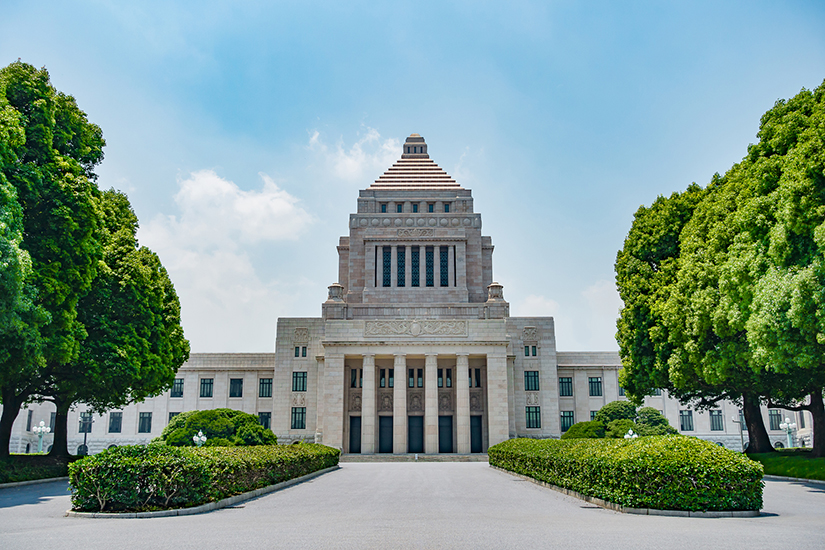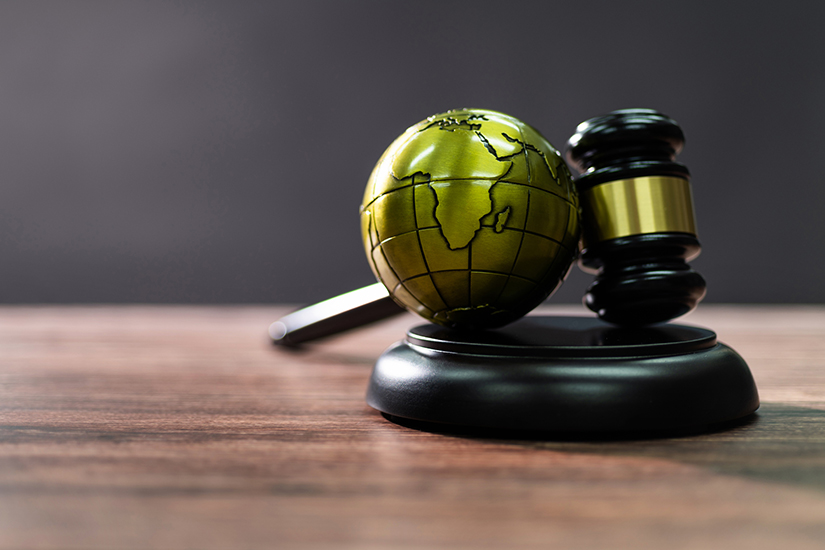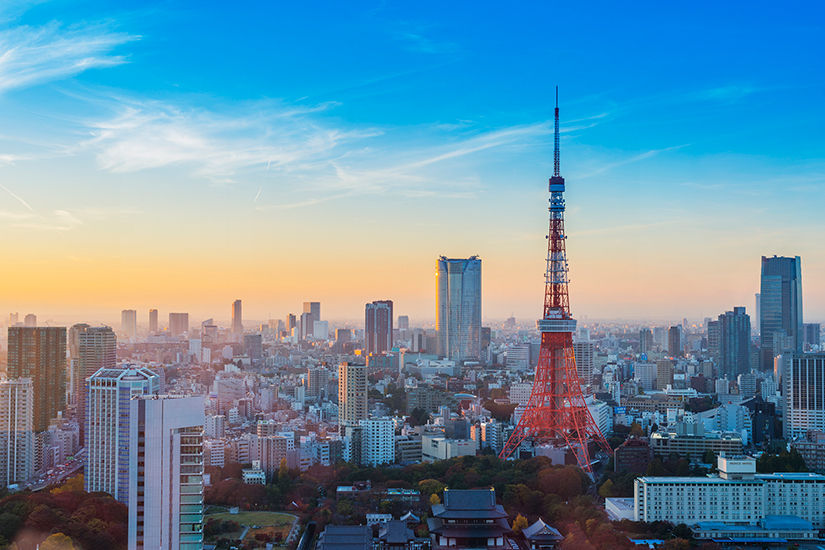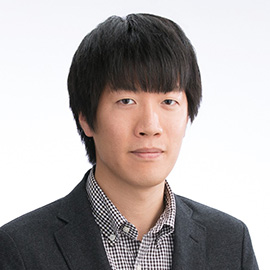Introduction
On August 14, 2024, Prime Minister Kishida announced his intention to step down without standing as a candidate in the Liberal Democratic Party presidential election. This brings down the curtain on his administration which has lasted approximately three years since it was inaugurated in October 2021. At the press conference, Prime Minister Kishida reflected that “I am proud to state that [we] have made major achievements. We have taken the lead in the international discussion toward cooperation at a time when the international community is becoming more divided.”[1]No doubt a full evaluation of the Kishida administration will be made in the future, but we can surely conclude that it left a legacy of major achievements in the fields of diplomacy and security, including revision of the three security documents and fundamental reforms of Japan’s defense capabilities, among others.[2]
This paper looks back at diplomacy under the Kishida administration with the focus on the values-oriented diplomacy on which Prime Minister Kishida placed importance; namely, diplomacy protecting the universal values of the international community. After that, this paper clarifies the issues faced by Japanese diplomacy going forward.

Trust as the key to diplomacy and security
It is mostly forgotten now, but when he came into office, Prime Minister Kishida initially made the following statement regarding diplomacy and security policies in a policy speech: “I firmly believe that the key to diplomacy and security policy is trust. On the basis of trust we enjoy from the international community thanks to the efforts of my predecessors, I will pursue resolute diplomacy in three areas in which I hold strong determination.”[3] Moreover, he presented his “determination to fully defend the universal values of freedom, democracy, human rights, and the rule of law” as the first of the areas in which he holds strong determination. He said that the second area was his “determination to fully safeguard the peace and stability of Japan” and the third was his “determination to lead the international community by confronting global-level issues and contributing to humankind,” and he thus clearly stated that he would tackle global issues affecting the entire international community, not only the peace and stability of his own country.
Japan’s diplomatic and security policies, which advocate the protection of these kinds of universal values, have been affected by the growing economic and diplomatic influence of China, in particular the “One Belt, One Road” concept proposed by the Xi Jinping administration in 2013, which has resulted in growing vigilance against China in Japan. In fact, in the 2010s, China has strengthened its collaboration with many undemocratic states by providing support backed by its economic power that is not bound by the standards of the OECD Development Assistance Committee (DAC). Furthermore, the fact of China’s rejection of the ruling of the South China Sea Arbitral Tribunal, saying that it “steadfastly opposes” the ruling,[4] combined with China’s hardline stance in the East China Sea, has come to be recognized as an extremely serious concern for the security of Japan.[5]
Against this background, the Abe administration passed legislation for peace and security in the Diet, which included content enabling “seamless” action to deal with “situations which do not reach the stage of using force” (grey zones),[6] and began to advocate for the “Free and Open Indo-Pacific” (FOIP) which aims to establish democracy and promote market economies in the Indian Ocean and the Pacific Ocean. Prime Minister Kishida also inherited the achievements of the Abe administration, which had strengthened international frameworks sharing universal values. He also stated in the aforementioned policy speech that promoting a free and open Indo-Pacific in cooperation with Japan’s allies and with like-minded countries, including notably the United States as well as Australia, India, and the countries of ASEAN and Europe was a means of fully defending universal values.
The response to the invasion of Ukraine by Russia, and the position of Japan
The Kishida administration, which advocated protection of the universal values of the international community, directly faced a test when Russia invaded Ukraine in February 2022 and a challenge to the international order by a nuclear power became a reality. Immediately after the invasion by Russia became clear, Prime Minister Kishida criticized the invasion by Russia, and on the following day he made it clear that Japan would impose economic sanctions on Russia.[7] Subsequently, Prime Minister Kishida not only strengthened those economic sanctions on Russia but also provided emergency humanitarian assistance, recovery and reconstruction assistance, assistance through international organizations, and other support to Ukraine.
Prime Minister Kishida did not position Japan’s response to the Ukraine situation as merely assistance to Ukraine; he positioned the invasion of Ukraine by Russia as a violation of rules set forth in the United Nations (UN) Charter such as the obligation to settle disputes by peaceful means and the principle of refraining from the use of force, and as an infringement of the territorial integrity and political independence of a state. In an address to the United Nations General Assembly at the General Debate in 2022, he made a statement as follows.
It is an imperative to maintain the international order where the rule of law is firmly established. The United Nations has been playing a central role in the development of such an international order. However, we see today its foundations being gravely shaken. Russia's aggression against Ukraine is an act that tramples on the vision and principles of the UN Charter. What is crucial is for any and all countries to be under the rule of law – not the rule by force, which we absolutely cannot allow.[8]
Prime Minister Kishida maintained this position consistently, and as the divide in the international community over how to respond to Russia has deepened, he has reaffirmed the rules set out in the UN Charter and repeatedly appealed to the international community about the importance of the “rule of law.”[9]
At the same time, Prime Minister Kishida strengthened collaboration with NATO. In 2022, he attended the NATO Summit Meeting, which was the first time for a Japanese prime minister to participate in this summit, and said to the NATO countries that the invasion by Russia is not a problem for Europe alone, but instead an outrageous act that undermines the very foundation of the international order, and that the security of Europe and of the Indo-Pacific cannot be thought about separately.[10] Prime Minister Kishida also said that “Ukraine may be East Asia tomorrow” and made clear his sense of crisis about the growing possibility of a Taiwan emergency occurring in East Asia as a consequence of China’s maritime advancement. This sense of crisis has come to be clearly perceived as a problem for the entire international community, as shown by his statement in the press conference at the G7 Hiroshima Summit Meeting that “Any attempt to unilaterally change the status quo by force anywhere in the world is never acceptable.”[11]

Remaining issues in nuclear disarmament
t is thought that Prime Minister Kishida had strong feelings about the elimination of nuclear weapons as a member of the Diet elected in Hiroshima Prefecture. That can be deduced from the words “I intend to strongly take the torch for nuclear abolition into my own hands” at the beginning of the book he published before he became prime minister.[12] In fact, at the G7 Hiroshima Summit Meeting, he not only visited the Hiroshima Peace Memorial Museum together with the leaders of the other countries, he also succeeded in adopting the G7 Leaders’ Hiroshima Vision on Nuclear Disarmament. It is no doubt a major achievement that at a time when the NPT Review Conference was at a deadlock, he was able to adopt a vision for nuclear disarmament with the G7 leaders and reaffirm that “nuclear war must never be fought.”[13]
However, due to the worsening of the security environment around Japan, Prime Minister Kishida has adopted a policy of strengthening the alliance with the United States and deepening reliance on nuclear weapons, and so he was unable to present any new ideas to overcome the current situation. The Hiroshima Vision went no further than reaffirming that the leaders would once again tackle the previous initiatives in the international community, including maintaining the NPT regime, bringing into force the Comprehensive Nuclear-Test-Ban Treaty (CTBT), promoting the Fissile Material Cut-Off Treaty (FMCT), and so on, disappointing some of the atomic bomb survivors.[14]
Prime Minister Kishida may have strongly believed he had struck a balance with the realistic policy of maintaining extended deterrence using the nuclear umbrella of the United States, but in order to overcome the current situation in which momentum is not growing toward nuclear disarmament in the entire international community, perhaps it would have been better if he had presented new approaches and initiatives such as participation as an observer in the Meeting of States Parties to the Treaty on the Prohibition of Nuclear Weapons (TPNW).
The issues facing Japanese diplomacy going forward
As discussed above, we can praise the Kishida administration for having taken opportunities such as the G7 Hiroshima Summit Meeting to make the presence of Japanese diplomacy felt in an attempt to protect the universal values of the international community. In fact, when Prime Minister Kishida visited the United States as a state guest in April 2024, he stated in the United States Congress that Japan and the United States carried a larger responsibility to protect the international order, saying “[t]ogether we carry a large responsibility,” and this was welcomed with applause.[15] Domestically too, he has made steady progress on the issues of revision of the three security documents, strike capability against enemy bases, increasing the defense budget, and other issues left from the Abe administration era, and realized the defense and diplomatic policies of Japan in a more in-depth form.[16]
However, unless there is a commitment to not only the security of Japan but also the various issues faced by the international community, the pursuit of diplomacy which advocates universal values will end up being no more than the mere presentation of a vision. Prime Minister Kishida strengthened the Japan-U.S. alliance as the foundation of peace and stability in the region on the grounds that Japan and the United States are “global partners” who have responsibility for the international order. Furthermore, in July 2024 he participated in the NATO Summit with the representatives of other partner countries, where he promoted the ideas that the security of Euro-Atlantic and Indo-Pacific is inseparable and security cooperation across regions is important. The next prime minister will likely be required to have the practical ability to actively engage in issues facing the international community by utilizing the strengthened collaboration in Japan-U.S. relations and cooperation with NATO countries, which can be said to be the legacy of Prime Minister Kishida, and have the ability to put into concrete action policies for the principle of protecting the universal values of the international community.

(2024/10/24)
Notes
- 1 “Prime Minister Kishida’s Press Conference: Declares He Will Not Run for the Liberal Democratic Party Presidential Election, to Step Down as PM,” NHK, August 14, 2024.
- 2 A full evaluation of Prime Minister Kishida has not been carried out overseas at the present time, but studies highly praising his diplomacy and security policies have begun to be published. For example, Mirna Galic, “How Fumio Kishida Shaped Japan’s Foreign Policy,” United States Institute of Peace, August 22, 2024.
- 3 “Policy Speech by Prime Minister KISHIDA Fumio to the 205th Session of the Diet,” Prime Minister’s Office of Japan, October 8, 2021.
- 4 “China Mobilizes the Entire Media to Criticize the South China Sea Ruling,” Nihon Keizai Shimbun, July 13, 2016.
- 5 Kei Koga, “The Future Direction of the U.S.-China Confrontation and the Path Japan Will Travel” in Takayuki Igarashi and Suguru Osawa eds., The U.S.-China Confrontation and the Future Direction of the International Order: The World and the Region Intersecting, Toshindo, 2024, p. 269.(Japanese: 古賀慶「米中対立の行方と日本の進む道」五十嵐隆幸・大澤傑編『米中対立と国際秩序の行方:交叉する世界と地域』東信堂、2024、269頁。)
- 6 Ministry of Foreign Affairs of Japan, “Development of Security Legislation: Why Legislation for Peace and Security Now?” April 5, 2023.
- 7 “Press Conference on Sanctions and Other Measures in Light of the Situation in Ukraine,” Prime Minister’s Office of Japan, February 23, 2022.
- 8 “Address by Prime Minister Kishida at the Seventy-Seventh Session of the United Nations General Assembly,” Prime Minister’s Office of Japan, September 20, 2022.
- 9 Regarding this point, refer to Takuya Yuasa, “The Outcomes of the G7 Hiroshima Summit Meeting and Future Issues for Japan’s Diplomacy: Considering Historical Lessons regarding ‘Values-Based Diplomacy,’” International Information Network Analysis (IINA), June 21, 2023.
- 10 “Outcome of Prime Minister Kishida’s Attendance at the NATO Summit Meeting,” Ministry of Foreign Affairs of Japan, June 29, 2022.
- 11 “Press Conference by Prime Minister KISHIDA Fumio as Chair of the G7 Hiroshima Summit Meeting,” Prime Minister’s Office of Japan, May 21, 2023.
- 12 Fumio Kishida, “Toward a World Free of Nuclear Weapons: A Courageous Will of a Peaceful Nation,” Nikkei BP, 2020, p. 4.(Japanese: 岸田文雄『核兵器のない世界へ―勇気ある平和国家の志』日経BP、2020年、4頁。)
- 13 “G7 Leaders’ Hiroshima Vision on Nuclear Disarmament,” Ministry of Foreign Affairs of Japan, May 19, 2023.
- 14 “G7 Hiroshima Summit Meeting Concludes: How It Was Received by Atomic Bomb Survivors and Other Interested Parties,” NHK, May 21, 2023.
- 15 “Visit to the United States: Third Day,” Prime Minister’s Office of Japan, April 11, 2024.
- 16 Some observers have the view that Prime Minister Kishida was able to realize this precisely because he was viewed as a “dove.” “(Urgent Series: The 3 Years of the Kishida Administration: Part 2) Major Security Transformation Due to the ‘Dove,’” Asahi Shimbun, August 16, 2024.

